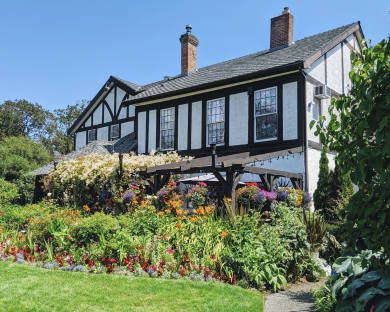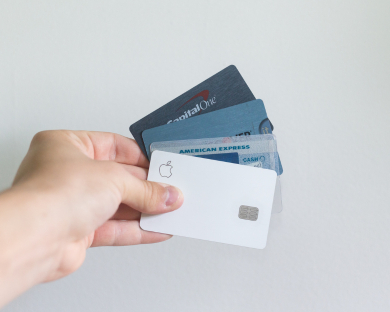How to Get a Bigger Mortgage: 10 tips for UK homebuyers in 2023

Maybe you’re a first-time buyer or maybe you’re finally planning the upgrade from a starter property to your dream home. Either way, if you’re struggling to get the mortgage you need, don’t worry! There are still plenty of ways to increase your chances of getting a bigger mortgage.
Here are 10 ways UK homebuyers can get a bigger mortgage in 2023.
Feel free to jump around:
- Put down a bigger deposit
- Increase your income
- Cut your spending
- Pay off outstanding debts
- Improve your credit score
- Lower your debt to income ratio (DTI)
- Take out a longer mortgage term
- Buy a different type of property
- Shop around different mortgage lenders
- Wait for better property market conditions
- Bonus: Choose a mortgage alternative (and buy a home worth up to 10x your income!)
1. Put down a bigger deposit
Of course, if you can afford it, the easiest way you could get a bigger mortgage is to put down a bigger deposit. A bigger deposit is likely to lower the overall amount you need to borrow, so it’s less risky for mortgage lenders.
When you put down a bigger deposit, it also shows lenders you’re financially stable. So, it could make them more confident in your ability to pay back a bigger loan.
Another reason a bigger deposit could get you a bigger mortgage is that it lowers something called your loan-to-value ratio (LTV).
So, what is an LTV?
It’s the amount you need to borrow as a percentage of the property value. For example, if you only have a 5% deposit, your LTV will be very high (95%). Whereas, if you have a 40% deposit, your LTV would be much lower.
The lower your LTV, the less risky it is for a mortgage lender to loan you money.
2. Increase your income
Another way you could get a bigger mortgage is to increase your income. Having a larger income would mean you could make bigger mortgage payments without putting a strain on your finances.
It means, in the eyes of a lender, you’re less likely to miss a mortgage payment. So, they may be more confident giving you a bigger loan.
So, if you‘re:
- pushing for a promotion
- looking for a new job with a better salary
- about to get a pay rise or a bonus
you might want to wait until your income has increased before you apply for a mortgage.
We know it isn’t always that easy though. Given the economy right now, having a massive income or saving a big deposit just isn’t on the cards for most UK home buyers.
Here are some more ways you could get a bigger mortgage (without having to save a huge deposit or pluck a promotion out of thin air!).
3. Cut your spending

Cutting down on how much you’re spending is another way to potentially get a bigger mortgage.
To work out how much you could afford in monthly mortgage payments, lenders look at your income and expenses. So, if your spending is too high, it might look like you wouldn’t be able to afford a bigger mortgage.
So, how much should (or shouldn’t) you be spending?
Well, Experian* recommends following the 50/30/20 rule to manage your finances. It’s a popular budgeting method where:
- 50% of your income goes to necessities like rent and groceries
- 30% goes to “nice to have” expenses like eating out or holidays
- 20% is for saving and investing
Of course, budgeting isn’t one-size-fits-all. As long you’re able to show lenders you’re sensible with your finances, that’s what matters.
4. Pay off outstanding debts
If you can afford to, paying off outstanding debts could increase your chances of getting a bigger mortgage for a couple of reasons:
1. Reduce your monthly payments
You’ll have fewer ongoing direct debits, so your monthly expenses will go down.
2. Lower your financial risk
You’ll show mortgage lenders you’ve got a history of paying off debt in full and on time (or even early), so they’ll be more confident in you as a borrower.
3. Improve your credit score
You’re trying to buy a home, so this won’t be the first you’ve heard about a credit score. Paying off debt is one way to improve it.
Credit scores are a hot topic when it comes to getting a bigger mortgage, so there’s more to say on this one…
5. Improve your credit score

While it can be annoying, the dreaded credit score can be an important piece of the puzzle when it comes to getting a bigger mortgage.
Mortgage lenders use your credit score to measure your “creditworthiness”—in other words, how likely you are to pay your mortgage.
A higher credit score shows you’ve got a good track record with:
- making payments on time
- managing your debt wisely
- consolidating previous debt
Generally speaking, the higher your credit score, the lower risk you are for mortgage lenders. A high credit score could also make you eligible for better mortgage products like lower interest rates.
The specific score you need to be eligible for a mortgage will depend on the lender and the particular product. You may be able to get a mortgage with a “poor” credit rating but, to get a big mortgage in the UK, you should probably aim for “good” or “excellent”.
Bear in mind, each credit agency rates scores in different ways. For example, what’s classed as “good” for Experian might not be the same for Equifax. So, it’s always best to check what score you should aim for with the individual mortgage provider.
6. Lower your debt-to-income ratio (DTI)
Lowering your debt-to-income ratio (DTI) will mean you have more money available to pay your mortgage, which may help you get approved for a bigger loan.
So, what is your debt-to-income ratio?
You can work out your DTI by dividing your total monthly debt payments by your monthly income before tax. A good DTI is typically lower than 36%.
How can you lower your debt-to-income ratio?
We’ve covered a couple of ways you can lower your DTI already, like:
- increasing your income
- paying off outstanding debts
- cutting down your expenses
But, here are two more things you can do…
1. Avoid taking on new debt
It might seem like an obvious one, but you’d be surprised how many people make the mistake of taking on new debt when they’re trying to buy a home. Whether it’s a new credit card or personal loan, taking on new debt will increase your DTI and make it less likely you’ll be eligible for a big mortgage.
You should probably avoid opening any new debt accounts until you’re sat on the sofa in your new home—it’s better to be safe than sorry!
2. Refinance existing debt
If you’ve got high-interest debt (like credit card debt), you might want to look at refinancing to a lower interest rate. Refinancing to a better interest rate could lower your monthly payments, in turn, lowering your DTI.
7. Take out a longer mortgage term

Taking out a longer mortgage term might help you get a larger mortgage because it’d lower your monthly payments, potentially making it easier to qualify for a bigger loan.
What is a mortgage term?
When you apply for a mortgage, you typically have a choice of different “terms” (the length of time you’ll need to pay off your mortgage) like 15 or 30 years. The longer the loan term, the lower your monthly payments may be.
Here’s an example:
Let's say you’re looking at a £300,000 mortgage with a 2.5% interest rate. If you take out a 30-year mortgage, your monthly payment could be around £1,200. If you take out a 15-year mortgage, your monthly payment could be around £2,000.
It’s important to know that the longer your mortgage term is, the more interest you’ll end up paying. So, that’s something to bear in mind when you’re weighing up your options.
8. Buy a different type of property
Buying a different type of property could make you eligible for a bigger mortgage, especially if you’re planning to buy a flat in the UK.
If you’ve got your eye on a flat, you may need to apply for a specific type of mortgage called a “leasehold mortgage”. It’s because a lot of flats are sold on a leasehold basis—when you own the home, but not the land it’s built on (which is owned by the freeholder).
Why would buying a leasehold home make it harder to get a bigger mortgage?
Leasehold homes often come with extra costs, like ground rent and service charges, which could increase the monthly costs of owning the home. So, if the service charge or ground rent is too high compared to your income, you might struggle to get a bigger mortgage.
9. Shop around different mortgage lenders

Different mortgage lenders have different lending criteria, interest rates and maximum loan amounts. So, you may be able to get a bigger mortgage if you shop around.
Taking out a mortgage is a massive step, so you might be tempted to stick with the bank you’ve used for the longest or that your parents used to buy their home, for example.
But, if you do some research and compare different lenders, you’ll be able to see which one has a higher chance of approving you for a bigger mortgage. You probably don’t want to settle for your first option!
10. Wait for better property market conditions
If you’re set on buying with a mortgage and you’ve already done everything you can to boost your buying power, you may just need to wait for the property market to change.
Right now, lots of people in the UK are struggling to get a big enough mortgage to buy the home they actually want. It’s because:
- The cost of living is high, so it can be hard to save for a home deposit
- There’s not enough new homes are being built
- Homes in the UK are notoriously expensive, especially if you’re living near London
Tired of waiting for things to get better? We created an alternative so you can buy the home you actually want now…
11. Choose a mortgage alternative like Gradual Homeownership

The truth is, it can be really difficult to buy the home you actually want with a mortgage right now. Even if you do everything you can possibly do to get a bigger mortgage, there’s still a high chance you won’t be able to afford the type of home you’ve always dreamed of.
That’s why we created Gradual Homeownership, the new way to buy a home worth up to 10x your household income without a mortgage and with just a 5% deposit.
What is Gradual Homeownership?
With Gradual Homeownership, you buy the part of the home you can afford today and our funding partners pay for the rest.
You pay rent on the part you haven’t bought yet while gradually buying the rest over time with no additional fees (and from as little as £50 each time).
With Gradual Homeownership there’s:
- No mortgage
- No interest
- No debt
Find out more about how Wayhome works.
*Experian, Step-by-Step Guide on How to Make a Budget, July 2021



